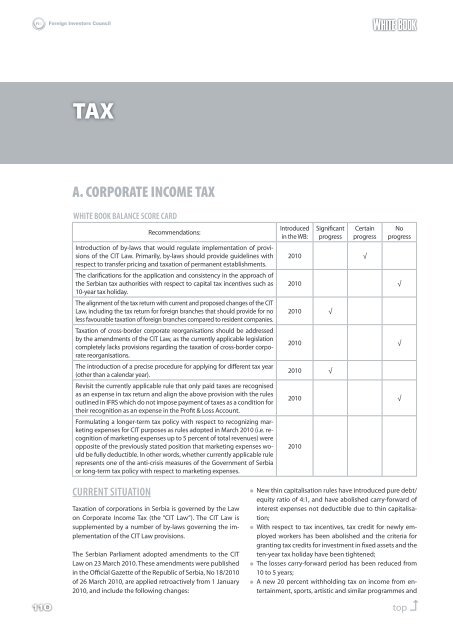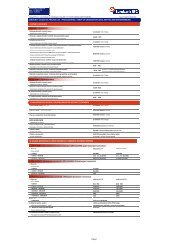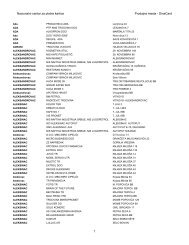Fic rEcommEndationS - Eurobank EFG
Fic rEcommEndationS - Eurobank EFG
Fic rEcommEndationS - Eurobank EFG
You also want an ePaper? Increase the reach of your titles
YUMPU automatically turns print PDFs into web optimized ePapers that Google loves.
TAX<br />
A. CORPORATE INCOME TAX<br />
WHitE BooK BaLancE ScorE card<br />
cUrrEnt SitUation<br />
Recommendations:<br />
Introduction of by-laws that would regulate implementation of provisions<br />
of the CIT Law. Primarily, by-laws should provide guidelines with<br />
respect to transfer pricing and taxation of permanent establishments.<br />
The clarifications for the application and consistency in the approach of<br />
the Serbian tax authorities with respect to capital tax incentives such as<br />
10-year tax holiday.<br />
The alignment of the tax return with current and proposed changes of the CIT<br />
Law, including the tax return for foreign branches that should provide for no<br />
less favourable taxation of foreign branches compared to resident companies.<br />
Taxation of cross-border corporate reorganisations should be addressed<br />
by the amendments of the CIT Law, as the currently applicable legislation<br />
completely lacks provisions regarding the taxation of cross-border corporate<br />
reorganisations.<br />
The introduction of a precise procedure for applying for different tax year<br />
(other than a calendar year).<br />
Revisit the currently applicable rule that only paid taxes are recognised<br />
as an expense in tax return and align the above provision with the rules<br />
outlined in IFRS which do not impose payment of taxes as a condition for<br />
their recognition as an expense in the Profit & Loss Account.<br />
Formulating a longer-term tax policy with respect to recognizing marketing<br />
expenses for CIT purposes as rules adopted in March 2010 (i.e. recognition<br />
of marketing expenses up to 5 percent of total revenues) were<br />
opposite of the previously stated position that marketing expenses would<br />
be fully deductible. In other words, whether currently applicable rule<br />
represents one of the anti-crisis measures of the Government of Serbia<br />
or long-term tax policy with respect to marketing expenses.<br />
Taxation of corporations in Serbia is governed by the Law<br />
on Corporate Income Tax (the “CIT Law”). The CIT Law is<br />
supplemented by a number of by-laws governing the implementation<br />
of the CIT Law provisions.<br />
The Serbian Parliament adopted amendments to the CIT<br />
Law on 23 March 2010. These amendments were published<br />
in the Official Gazette of the Republic of Serbia, No 18/2010<br />
of 26 March 2010, are applied retroactively from 1 January<br />
2010, and include the following changes:<br />
Introduced<br />
in the WB:<br />
Significant<br />
progress<br />
Certain<br />
progress<br />
2010 √<br />
No<br />
progress<br />
2010 √<br />
2010 √<br />
2010 √<br />
2010 √<br />
2010 √<br />
New thin capitalisation rules have introduced pure debt/<br />
equity ratio of 4:1, and have abolished carry-forward of<br />
interest expenses not deductible due to thin capitalisation;<br />
With respect to tax incentives, tax credit for newly employed<br />
workers has been abolished and the criteria for<br />
granting tax credits for investment in fixed assets and the<br />
ten-year tax holiday have been tightened;<br />
The losses carry-forward period has been reduced from<br />
10 to 5 years;<br />
A new 20 percent withholding tax on income from entertainment,<br />
sports, artistic and similar programmes and<br />
110 top �<br />
2010




